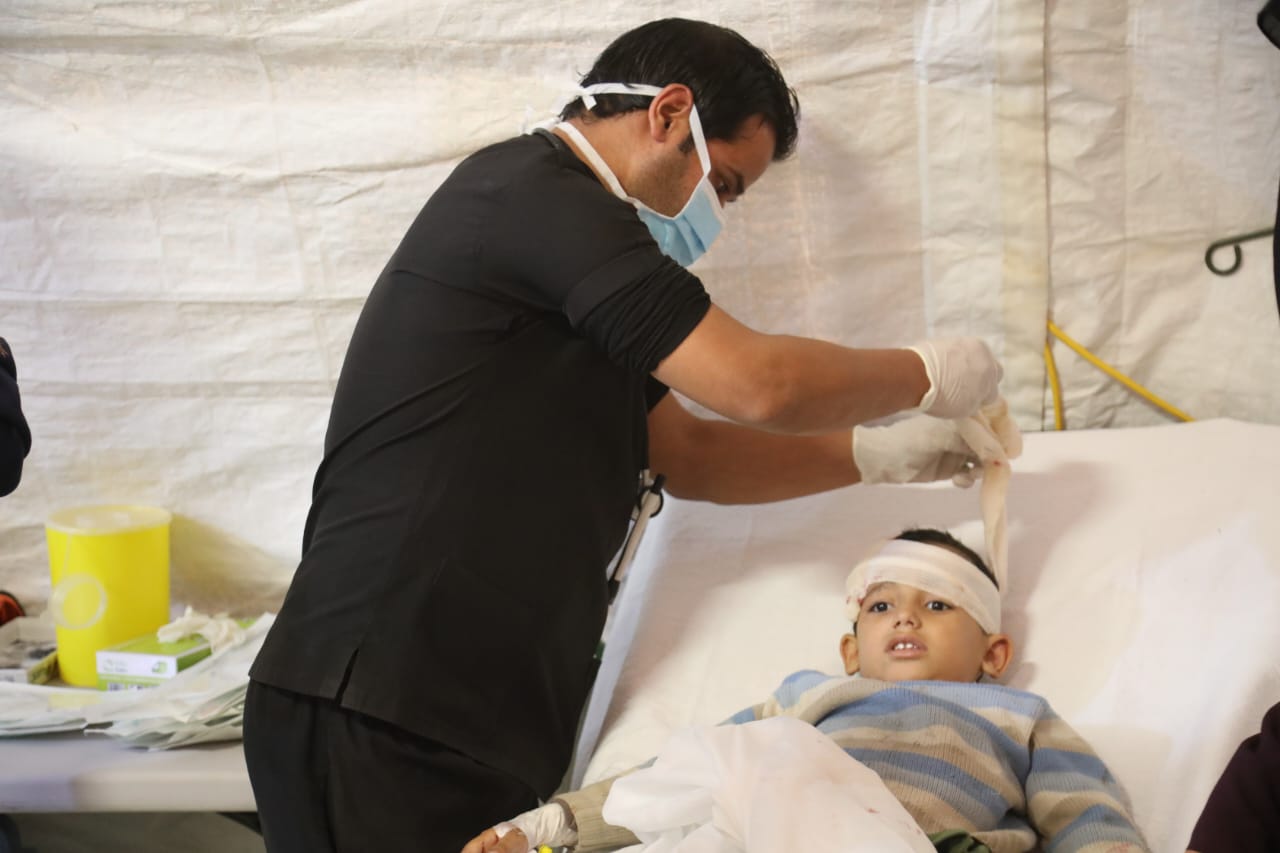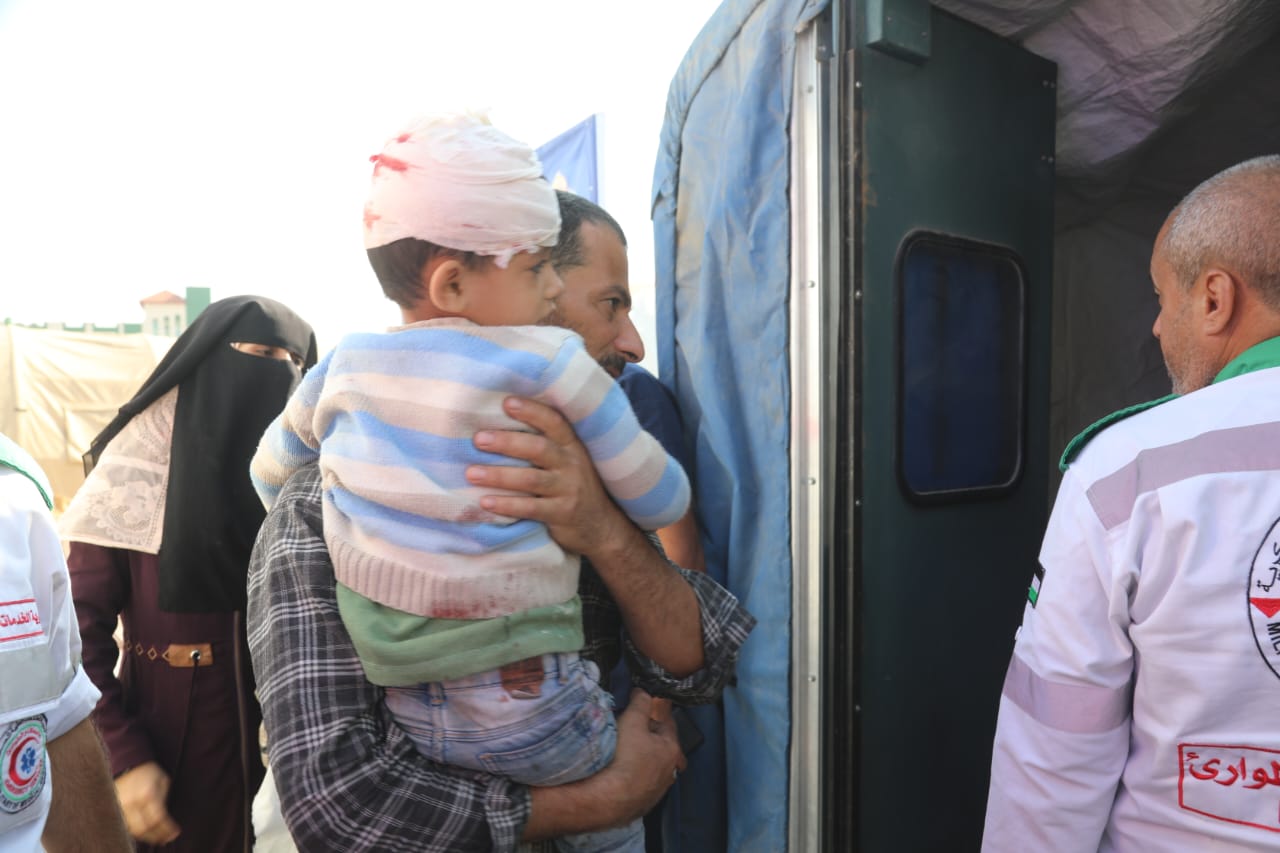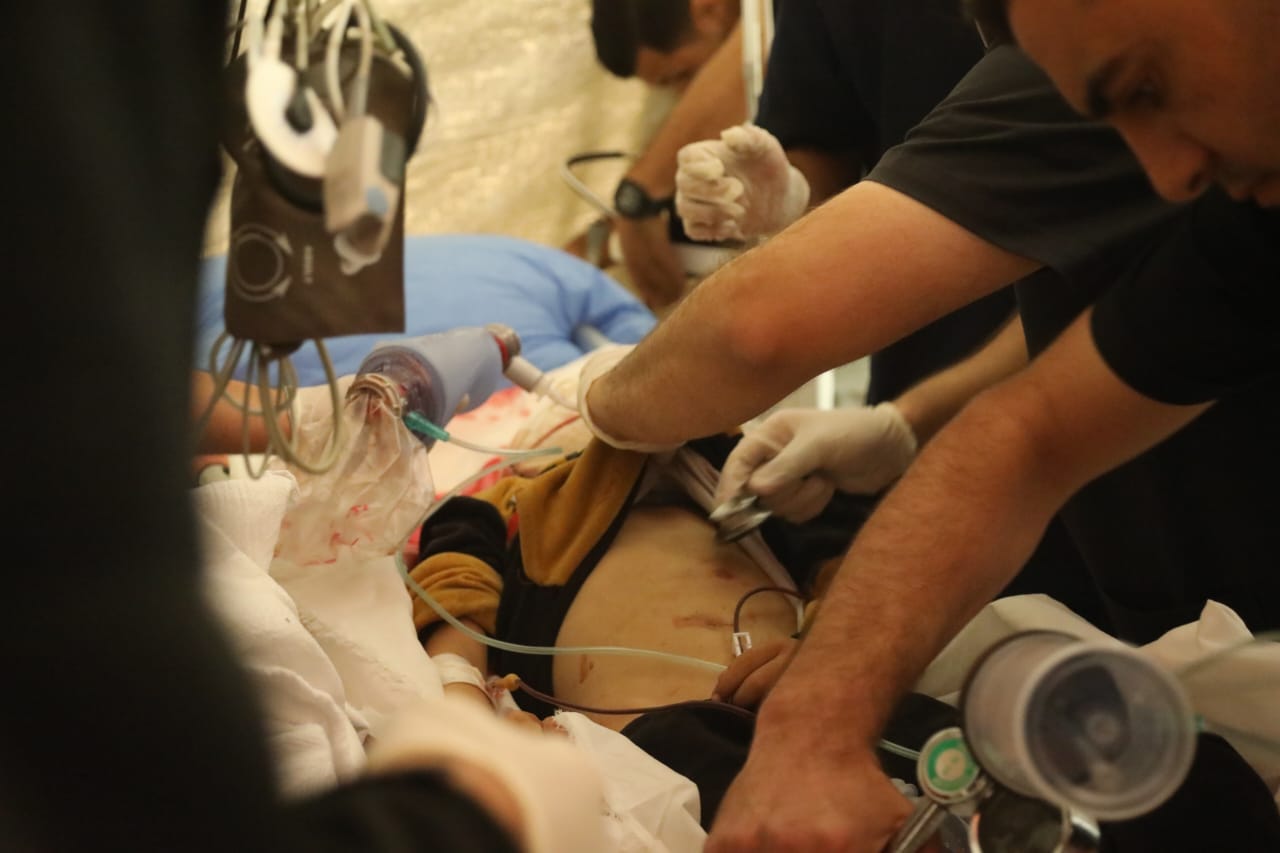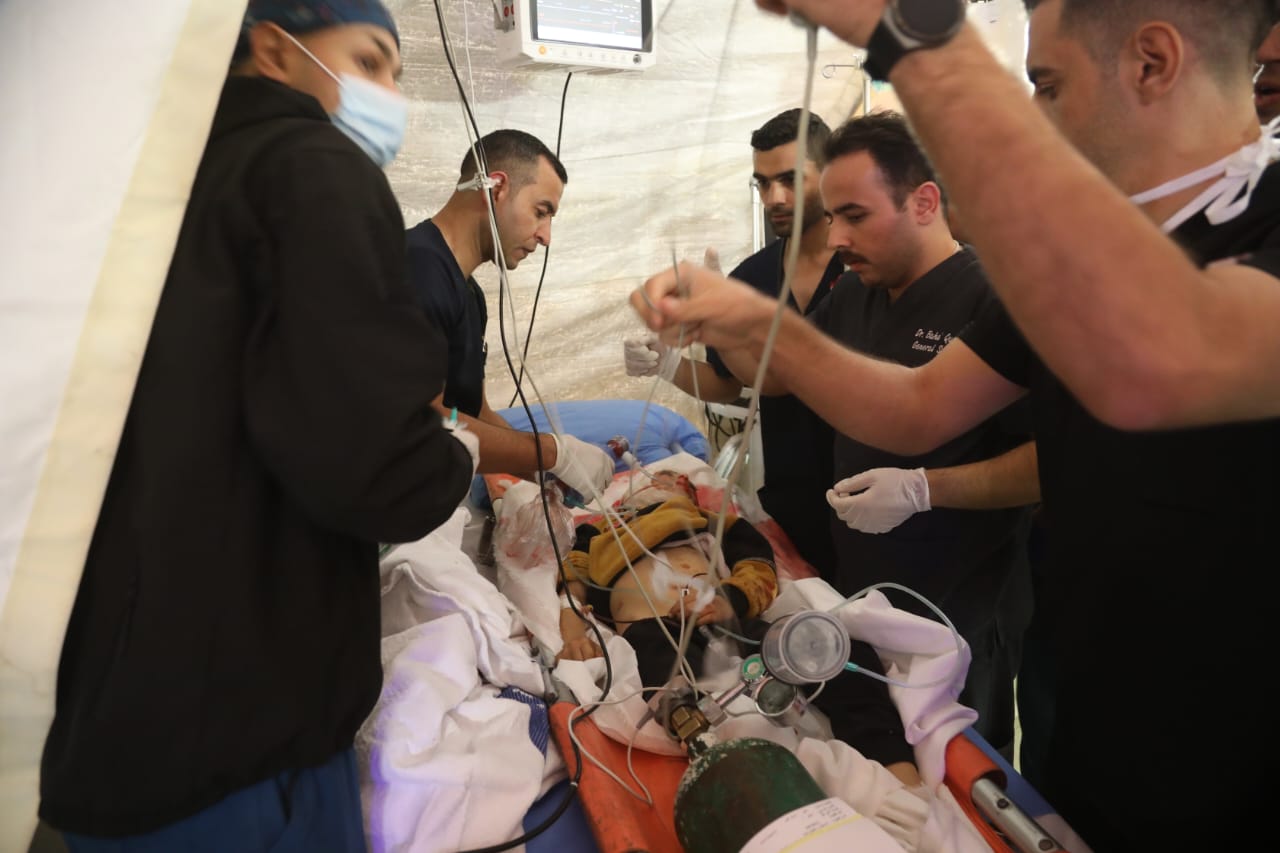AMMAN: Jordanian military field hospitals in the besieged Gaza Strip stand as the primary, and often the “only,” fully functional medical facilities in this war-torn area.
They have transcended their medical roles, evolving into sanctuaries for Gazans who seek refuge amid the relentless Israeli bombardment of their territory.
In the Gaza Strip, Jordan has established two pivotal field hospitals. The first was inaugurated in 2009, in the aftermath of the Israel-Hamas conflict in 2008. The second facility was set up more recently in Khan Younis, which is the second-largest city in Gaza, with its establishment dated back to Nov. 29.

Doctors treat patients at a Jordanian military field hospital in the besieged Gaza Strip. (Supplied)
These vital medical institutions are operated under the efficient management of the Jordanian army, following direct instructions from King Abdullah of Jordan.
The Jordanian military has demonstrated a strong commitment to these hospitals. According to official reports, the Jordanian air force has undertaken six significant airdrop operations.
These airdrops have been crucial in delivering medical aid to the hospitals in Gaza, utilizing parachutes for efficient and safe delivery. The most recent airdrop, which took place on Dec. 14, saw the participation of Princess Salma, the daughter of King Abdullah.

Doctors treat patients at a Jordanian military field hospital in the besieged Gaza Strip. (Supplied)
Princess Salma holds a distinguished position as a first lieutenant/pilot in the Royal Jordanian Air Force.
A concerning incident was reported on Nov 16. Seven members of the medical staff at the field hospital in Gaza sustained injuries. This unfortunate event occurred at the entrance of the emergency department, highlighting the perilous conditions under which these medical professionals work.
One field hospital, located in Tel Al-Hawa in northern Gaza, known as “Gaza/76,” is a 40-bed facility that finds itself in a location that has been subject to heavy bombardment by Israeli fighter jets.

An injured child arrives at a Jordanian military field hospital in the besieged Gaza Strip. (Supplied)
Tragically, the medical staff of this hospital experienced injuries while they were engaged in the noble act of providing medical aid to Palestinians who had been wounded during an air strike.
An anonymous army source, in a conversation with Arab News, shed light on the operational status of the two Jordanian hospitals in Gaza.
The source emphasized that these hospitals are not just functional but are “operating 24/7 at full capacity.” They are also performing complex surgical procedures on a daily basis, a testament to their crucial role in the region.
The source further revealed that these hospitals are not merely medical centers but have become sanctuaries for many Palestinian families. These families, especially those in the southern Gaza Strip city of Khan Younis, are seeking refuge at the Jordanian hospitals, seeing them as safe spaces in a landscape marred by conflict.

Doctors treat patients at a Jordanian military field hospital in the besieged Gaza Strip. (Supplied)
After the end of a brief one-week truce in Gaza on Dec. 1, Israel has expanded its military operations, particularly in the southern part of the enclave. This escalation has led to a surge in the number of displaced Palestinians. Hundreds of thousands are reported to have sought shelter in facilities run by the United Nations, and in other areas in the southern towns.
“The hospital in the northern part of Gaza has become a symbol of safety,” the army source said.
“Displaced Palestinians are seeking protection not just inside the hospital but also around its vicinity, particularly at the entrance. They perceive it as a safe zone, free from the threat of Israeli strikes.”
The compassionate staff of the hospital are not just providing medical care but are also sharing essential supplies like food and water with the displaced Palestinians.

Doctors treat patients at a Jordanian military field hospital in the besieged Gaza Strip. (Supplied)
Some of these displaced individuals have chosen to stay at the hospital, even after a majority of the population from the intensively bombarded northern Gaza moved south.
As for the situation at the “Special Field Hospital 2” in Khan Younis, the source noted an increasing influx of displaced Palestinians. This increase is attributed to the fact that more supplies are reaching this newly established hospital. Additionally, its location in southern Gaza makes it more accessible to the displaced population, who are now predominantly located in the south.
The Jordanian Armed Forces (JAF) made a significant announcement recently. They reported that a large convoy, consisting of 15 trucks loaded with essential supplies, medical equipment, and 2,000 units of various blood types, arrived at the Khan Younis hospital on a Thursday evening.
This delivery plays a crucial role in supporting the hospital’s surgical operations and overall medical capabilities.
JAF also confirmed that the hospital received an additional 2,000 units of blood, crucial for the numerous surgical procedures they undertake.
UN estimates paint a stark picture of the displacement crisis in Gaza. Of the 2.4 million population in Gaza, an overwhelming 1.9 million people are displaced, with the majority located in Khan Younis and other southern towns.
Between Nov. 29 and Dec. 21, the hospital in Khan Younis has been a beacon of hope, receiving 15474 cases and successfully performing 4473 surgeries, as reported in a JAF statement.
The army highlighted the multifaceted role of the Khan Younis hospital. While it primarily functions as a surgical center, it also opens its doors to emergency cases, including those resulting from the war.
“The hospital in Khan Younis is a round-the-clock facility, always ready to welcome anyone seeking medical attention. It caters to a wide array of medical needs, from complex surgeries and injury treatments to addressing more minor illnesses, such as the flu,” the source added.
















